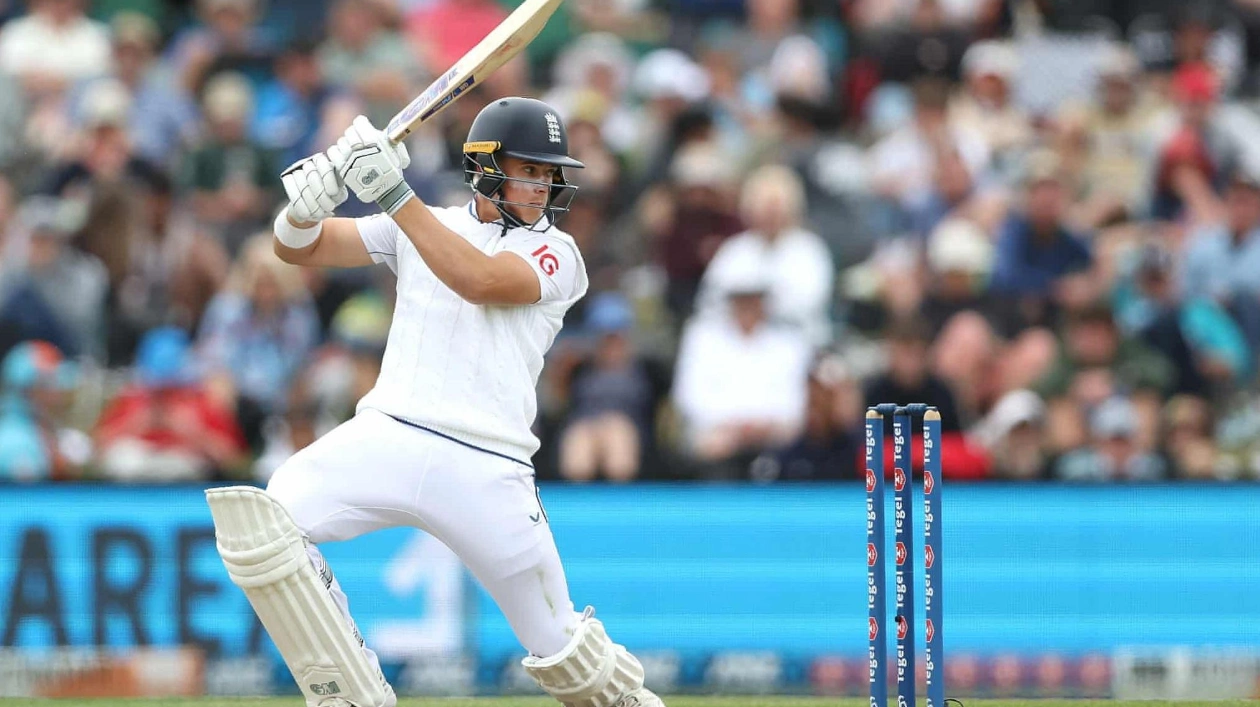Almost six years ago, 15-year-old Jacob Bethell was honored with the Gray Nicolls Young Cricketer of the Year award, and I had the chance to sit next to him at lunch following the ceremony. Since then, I've kept an eye on his progress, though it wasn't until the last 18 months that I truly witnessed his rise, culminating in his Test debut last week. I appreciate his batting stance: he appears to be side-on, with solid orthodox fundamentals, presenting the full face of the bat, and moving fluidly forward and back. In his maiden Test innings, he scored 10 runs, but his mindset was spot on: no panic, he gave himself time to assess the situation, and remained calm even when faced with a series of deliveries he couldn't score off.
Many, including myself, have often described Ollie Pope, who typically bats at No 3 for England, as looking somewhat frantic early in his innings. Bethell, at 21 and making his debut, appeared far more composed. This contrast was evident in his second innings. While he scored 10 off 34 in his first knock, he faced just three more deliveries in his second and managed a half-century. It's unclear whether this was a response to the situation, with England needing a feasible run chase, or if a message from the dressing room urged him to showcase his batting prowess. The crucial aspect was the outcome: he contributed, scored 50, and now feels capable of performing at that level.
Sometimes, young players approach the game with a refreshing innocence. They aren't daunted by the challenge of stepping up a level. Instead, they can be oblivious to the pressure, entering the game with no expectations and little to lose. From afar, it seems Bethell was embraced by the environment and simply aimed to enjoy the occasion, which is exactly what everyone would have hoped for.
The selection of a 21-year-old with limited first-class experience will undoubtedly draw criticism, and there are valid reasons for concern. However, one must trust the judgment of Brendon McCullum, Ben Stokes, and Rob Key, who are constantly observing England's top players. They would have considered numerous factors in selecting Bethell, notably his character and behavior during the white-ball series against Australia in September and the Caribbean last month. They must have seen enough to be confident in throwing him into the mix. He wasn't the initial choice—the plan was for Jordan Cox, another promising player, to get a chance until he was injured in training shortly after the team arrived in New Zealand—but they have seen more of Bethell than most and believe he is ready.
Many county players might feel they deserve the opportunity after several seasons and numerous runs. Some may be disheartened that this young player has jumped ahead in the queue. For a long time, England had a well-established hierarchy—I recall when Jonathan Trott made his debut, the selectors spoke of him being next in line and earning his chance. However, one could argue that the technique required for county cricket differs significantly from that needed for Tests. This distinction might have been less apparent in the 1980s and 90s when many top bowlers were playing for English counties, but nowadays, there aren't many bowlers exceeding 90mph in the County Championship. The leap has always been significant, and it remains as high as ever.
I wouldn't say Bethell's selection was incorrect, and over time, it might be viewed as inspired. However, Key must make shrewd choices. His goal is not just to assemble the best England team but also to encourage county cricketers to continue refining their skills. We've seen Jamie Smith excel for Surrey and be rewarded, which is crucial for players to feel that the selectors are closely monitoring them, that opportunities exist, and that being picked for England isn't solely about being spotted on YouTube and plucked from obscurity.
Source link: https://www.theguardian.com






